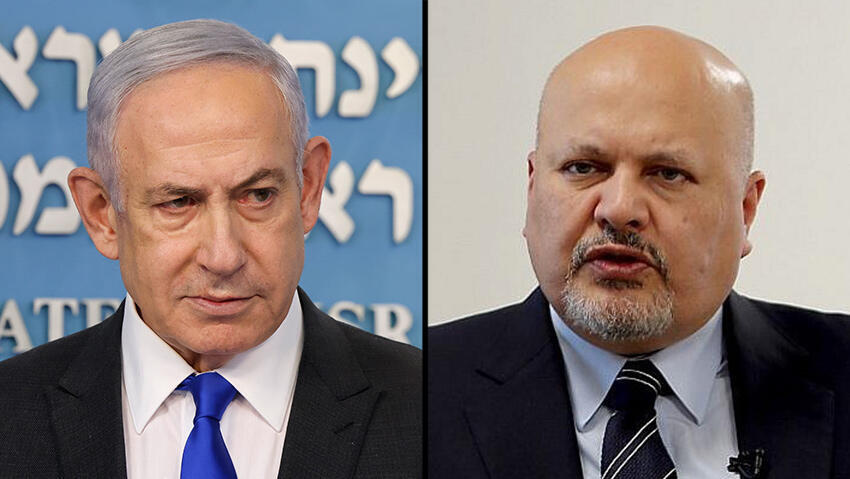Getting your Trinity Audio player ready...
Israel has accused Karim Khan, the chief prosecutor of the International Criminal Court (ICC) in The Hague, of acting in surprising and unexpected bad faith in his announcement that he is seeking arrest warrants for Prime Minister Benjamin Netanyahu and Defense Minister Yoav Gallnt.
Israeli officials confirm Secretary of State Antony Blinken's comments that Israeli he Khan had scheduled a visit to Israel next week as part of his investigation into alleged crimes by its leaders.
During his visit, Khan was supposed to observe how Israel conducts its investigations into allegations of wrong doing, and how it integrates ICC directives into military decisions, including humanitarian aid protocols, rules of engagement, orders, and guidelines. An advance team from Khan's office was already en route to Israel and was scheduled to arrive on Monday, with meetings planned with Israeli officials.
The ICC prosecutors investigation was set to be the first time Israel officially engaged with the ICC prosecutor’s office, despite Israel not being a member of the court and its dispute of the ICC jurisdiction over the country.
Given these circumstances, Israeli officials were stunned by Khan's last-minute and unexpected announcement. Khan had prepared this announcement and even recorded a video, despite knowing his team was on their way to Israel for meetings.
Blinken said that the delegation informed Israel that they did would not board their flight, at the same time Khan told CNN of his decision. Officials said they feared his conduct is indication that Khan aimed to leverage the situation for publicity at Israel's expense, reinforcing their claim of his bad faith.
2 View gallery


Humanitarian aid enters Gaza through the Kerem Shalom crossing in March
(Photo: Carlos Garcia Rawlins / Reuters)
Officials in Israel were outraged by Khan's unacceptable comparison between the crimes of Hamas and those of Netanyahu and Gallant in his statement.
Khan’s request will now go to a pre-trial chamber, which will decide if there is sufficient basis to issue warrants. This decision can then be appealed. If the judges approve the warrants, all 123 countries that are parties to the Rome Statute, must adhere to the arrest warrants. These include almost all European countries, Canada, Australia, Japan, New Zealand, Latin America, Africa, Jordan, and Tunisia. The United States, India, Russia, China, and Israel are not members.



